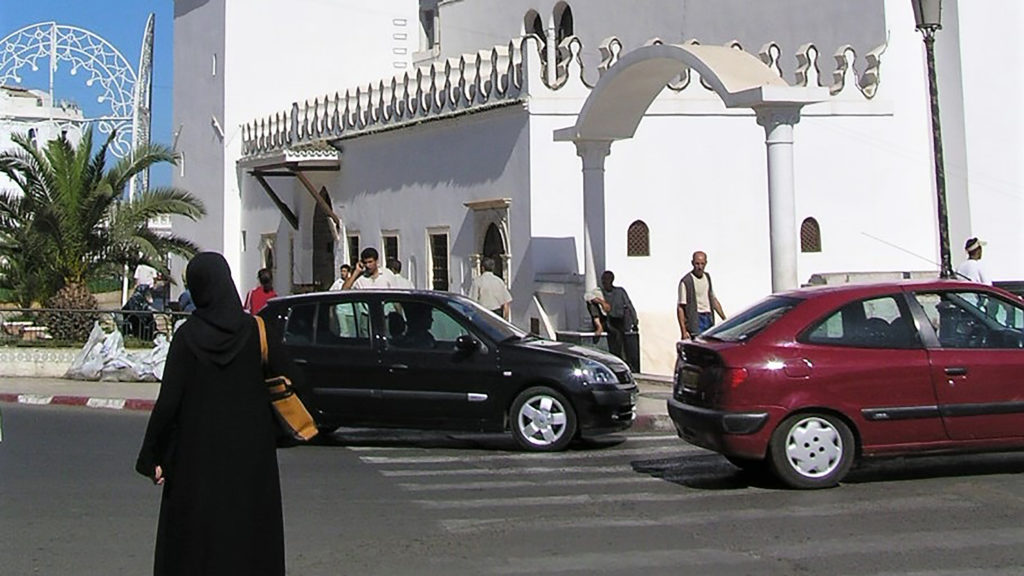A sharp crack of the bat sends the base runners into motion. The shortstop moves smoothly to his left, fields the ball and tosses it to the third baseman. The third baseman grabs the baseball out of his glove and throws the ball as hard as he can at the muddy, square base barely a foot away.
Cheers erupt from every player as the ball rolls to the outfield. The barefoot left fielder doesn’t retrieve the ball; instead he turns a few cartwheels in celebration.
“No man, you’re playing the wrong sport. This isn’t cricket,” shouts the coach. “We’re playing baseball, you have to touch the base in order to get the out — not knock it over with the ball.”
The coach, International Mission Board missionary Kurt Holiday, shakes his head as the celebration continues and looks to his wife, Janna Kay, for a little support. She’s already hiding her face trying to conceal her laughter. Finally, Kurt smiles and throws his hands up in defeat.
Coaching baseball players in South Africa is definitely different from any team the Holidays ever coached in the United States. When you factor in the different types of “delay of game” — such as shooing chickens off the field, chasing down baboons that have stolen rolling baseballs or waiting for women carrying jugs of water across the middle of the field — there is no comparison to the American version of the sport.
Most South Africans have never heard of baseball, let alone watched a game. Despite the lack of knowledge, most schools welcome the coaching duo into their communities with open arms. The Holidays not only bring baseball with them but also an important message about the saving grace of Jesus Christ.
“We use baseball as a way to build relationships within the communities,” Kurt says.
“We come in and do some coaching clinics and after each clinic we do some Bible studies. After a few practices, we have a game where the parents come watch and then we try to start some adult Bible studies which we hope eventually lead into new churches.”
The Holidays teach baseball fundamentals to anyone who asks, but their main focus is in the colored communities in the Greater Johannesburg area. Many coloreds, so called because of their mixed races, live in informal settlements made up of houses built out of tin or scraps. During South African apartheid times, the coloreds were not accepted by the black community or the white communities because of their mixed race.
Colored schools readily open their doors for the not-so-traditional baseball practice. One headmaster said the students have nothing to do after school but walk around and find trouble. He feels that for his students, the combination of Bible study and baseball is exactly what is needed.
Players show up for practice wearing everything from school uniforms and bulky black dress shoes to well-worn T-shirts and no shoes at all. No one seems to notice the bright, white baseball pants Kurt wears. They only see the bag full of child-sized gloves and bats being unloaded from the car.
The 10- and 11-year-olds dive into the gear, but aren’t quite sure which hand the baseball glove is supposed to fit on. One left-handed boy wears a right-handed glove on the wrong hand. Another decides the glove makes a better shade from the hot sun and places it on his head before proceeding to play catch barehanded.
Kurt calls the group to gather around him and begins to explain the fundamentals of throwing.
“I’m a Christian, so I call this the cross position,” Kurt says as he demonstrates how to separate the glove and ball for the proper throwing position. “It’s like the cross Jesus died on.”
During batting practice, Kurt tells the young players to keep their eye on the ball and to never stray from it.
Over on another corner of the soccer field turned baseball field, Janna Kay teaches how to field a ground ball. The groups takes a short rest break as a woman pushing a wheelbarrow filled with cans of water cuts across the playing field.
“You know, it’s a mistake for people to assume they can’t use their gifts on the mission field,” Janna Kay says as she tosses another grounder. “We are a family of baseball fanatics and here we are, in a sports-mad country, teaching about the two things we love the most: Jesus Christ and baseball.
“It just doesn’t get any better than that.”
(BP)





Share with others: